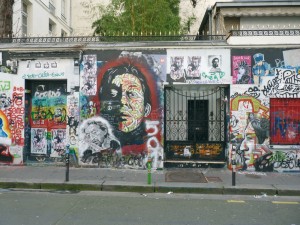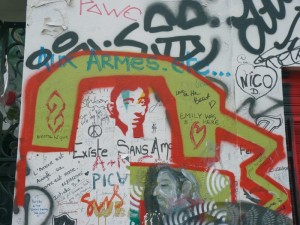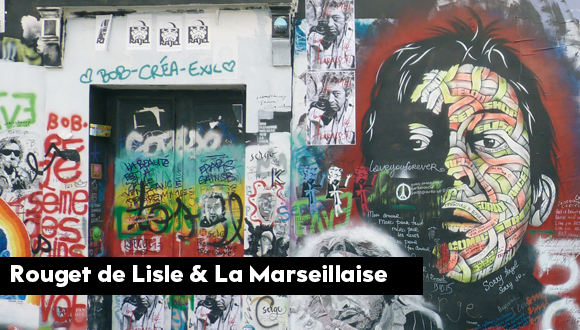 |
 |
Mockery & cetera
Following its creation in 1792, the song written by Rouget de Lisle was translated into several languages, cited, spoofed and even misused. The French People along with some foreigners appropriated La Marseillaise, quickly, lastingly but also in part. Some repeated the lyrics, and others a few notes… La Marseillaise was claimed and acclaimed but it was also fought.
Here are some examples of these “reuses” :
On 2 October 1792, French composer François-Joseph Gossec (1734-1829) harmonised and orchestrated the song for the first time in an opera called L’Offrande à la liberté [Offering to Liberty]. In 1792, the lyrics of the song were distorted in order to compose a Parisian carnivalesque hymn dedicated to French cuisine called Le Retour du soldat [The Return of the Soldier]. The song renamed La Marseillaise de la Courtille reintroduced both the music and the lyrics of La Marseillaise by Rouget de Lisle. In 1840, Richard Wagner (1813-1833) who was living in Paris at the time wrote to Robert Schumann (1810-1856) : “I learned that you put to music the verses of The Two Grenadiers poem by Heine and that you incorporated La Marseillaise at the end. I also put them into music last winter myself and also incorporated La Marseillaise. This is not insignificant !”
During their 1946 concert tour in London, guitar player Django Reinhardt and violinist Stéphane Grappelli gave a jazz improvisation of La Marseillaise that was recorded under the title Echoes of France. Written in 1967, John Lennon’s song All You Need Is Love starts with the introduction to La Marseillaise.
Aux armes et cætera
It was in Jamaica in January 1979 that Serge Gainsbourg (1928-1991) wrote the lyrics of his song Aux armes et cætera on the music of La Marseillaise by de Rouget de Lisle. Five days later, Gainsbourg recorded his first reggae album. His interpretation of La Marseillaise became a scandal with significant public outrage. Years later, he confessed that since he did not know all the verses of the French national anthem, he looked at the French encyclopaedia Le Grand Larousse and observed that to save place the chorus had been abbreviated to “Aux armes et cætera…” or “etc.” or “bis”.


Ajouter un commentaire